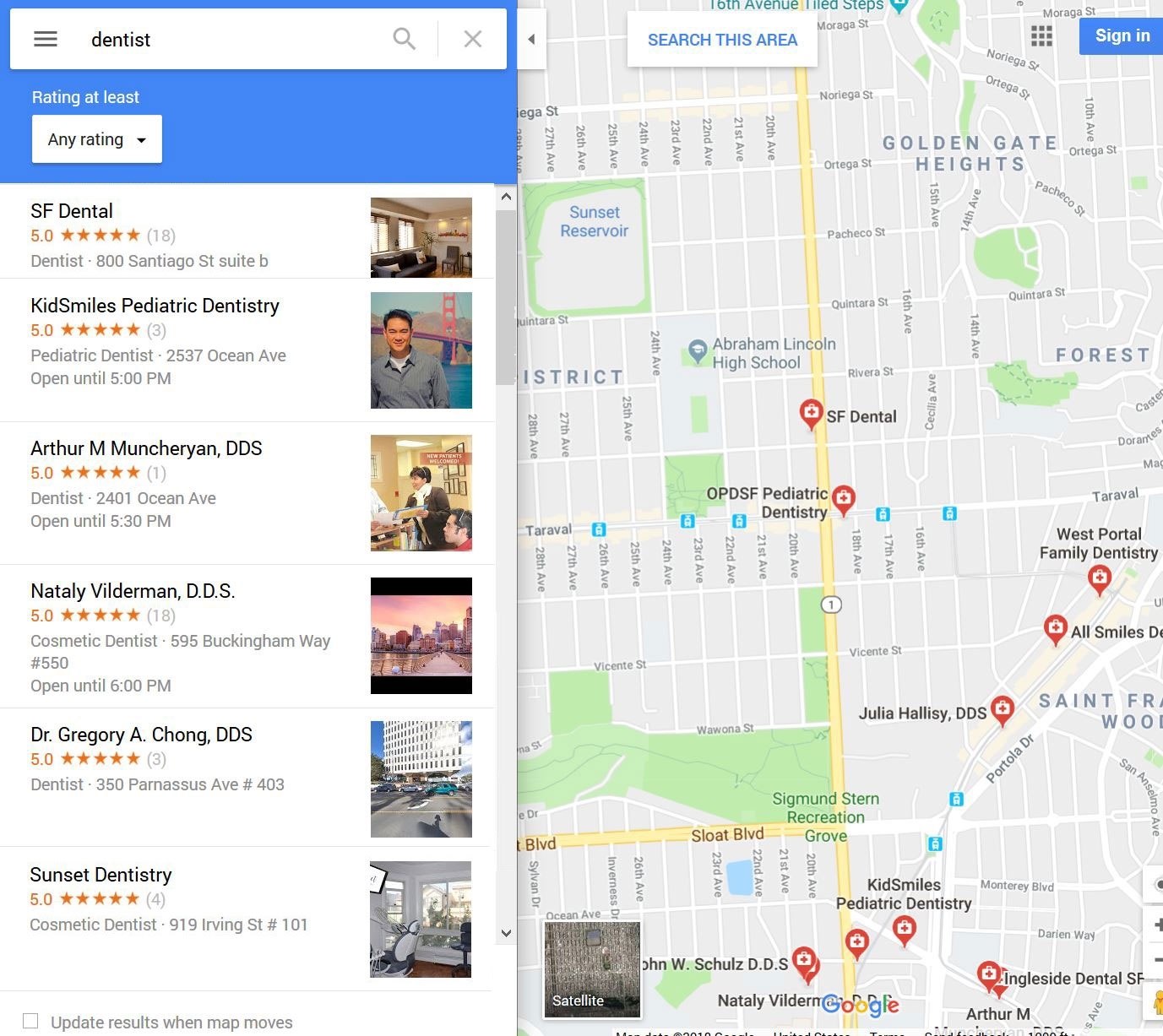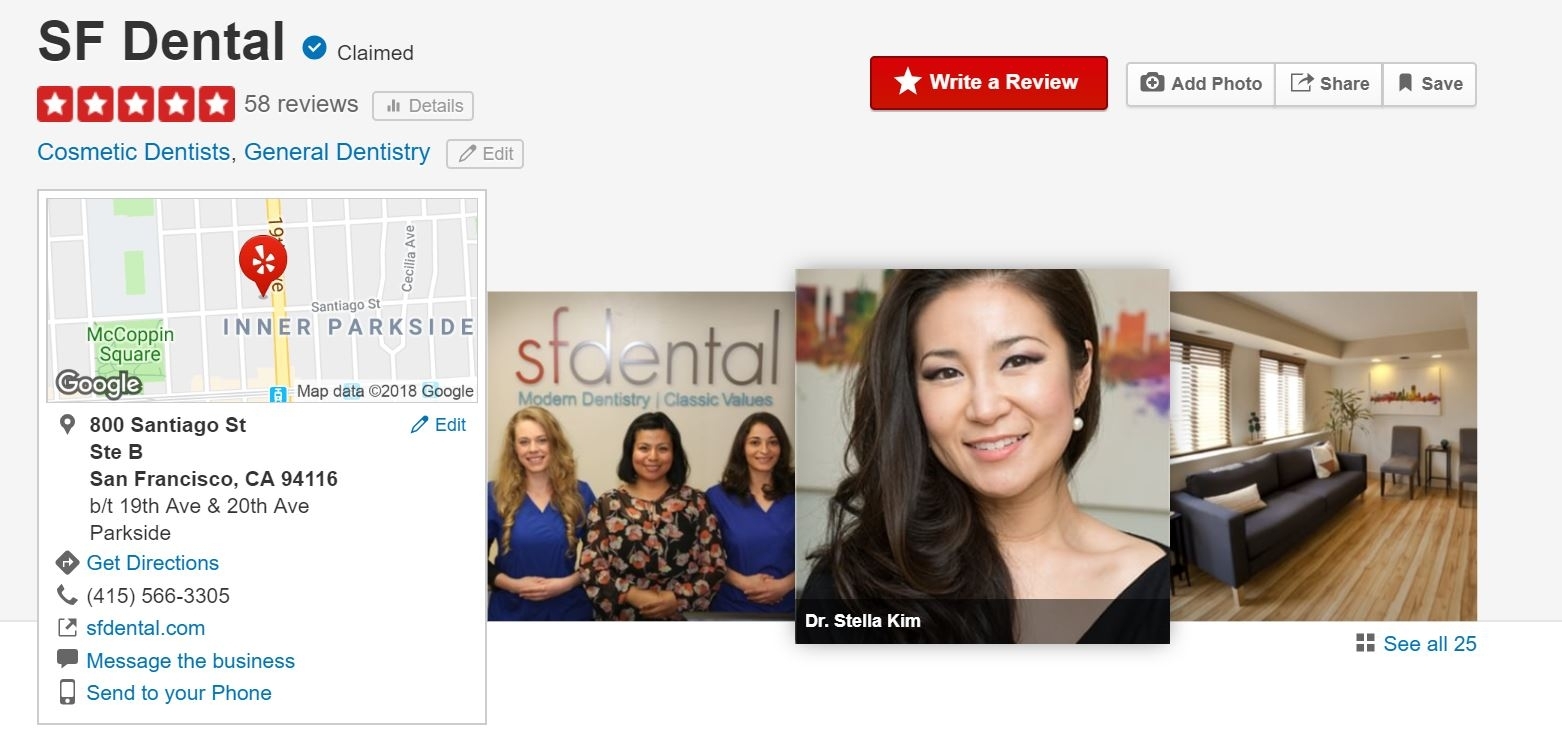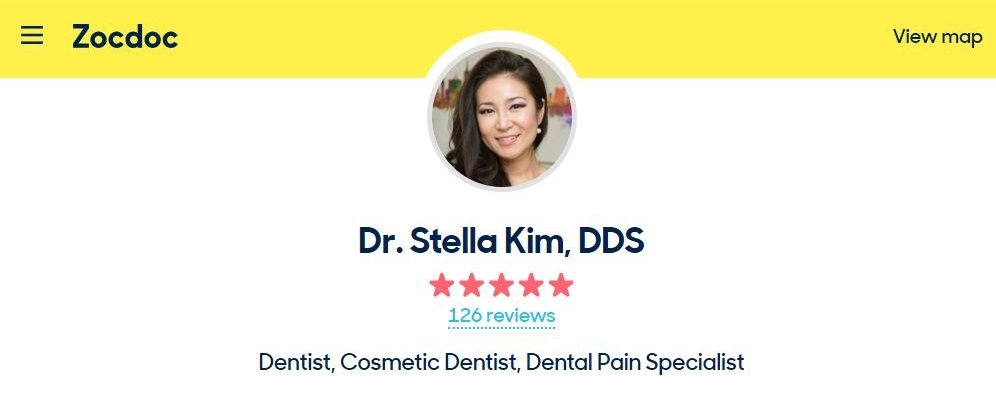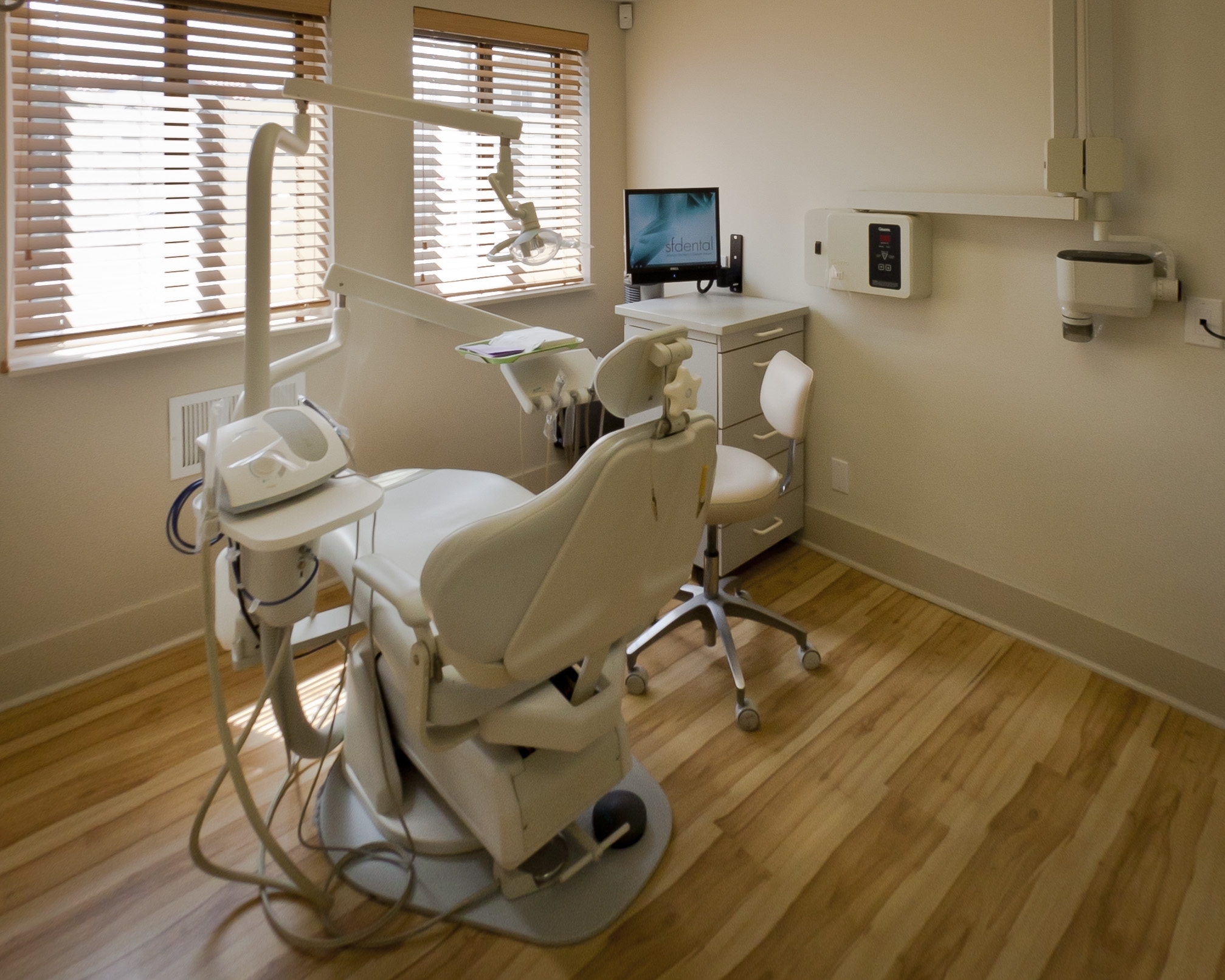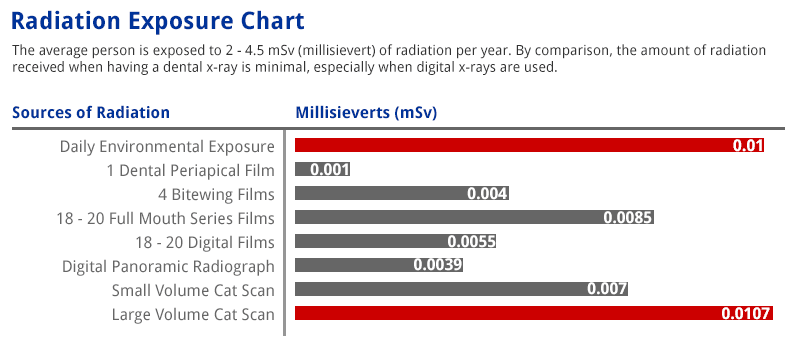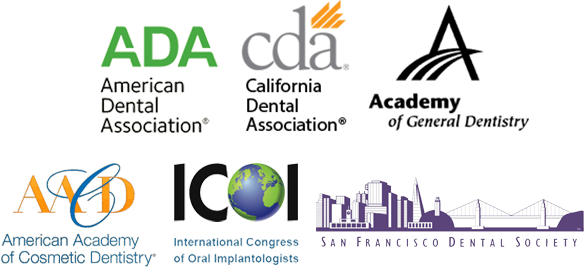Finding a good dentist is like finding a good auto mechanic: it can be hard to know if you’ve made the right choice until something breaks down.
This makes the search for a dentist stressful, especially if you’ve recently moved to a new area, or if you live in a big city like San Francisco where the costs of running a practice are high and dentists are competing for your attention.
Luckily, there are ways you can judge the quality of a dental practice, even before your first visit. Below, you’ll find 10 tips for making sure your dental health stays in the hands of the best dentist possible.
1. Get dentist recommendations from friends and relatives (if possible)
If you have friends or relatives who love their dentist, start there. (If not, don’t worry—there are other ways to find a good dentist, see tip #2 below.)
Being well-liked is not a fool-proof way of identifying a great dentist. However, most dentists who truly care about their patients also care what their patients think of them. For that reason, good dentists will strive to make you happy and comfortable throughout your visit while also providing top-quality dental care.
Of course, personalities differ. Some dentists are naturally outgoing and chatty, while others are quieter and more reserved. Both types can be great clinicians, and some patients prefer one personality over the other. But if someone you trust has been going to the same dentist for years and speaks very highly of that practitioner, it’s a good sign.
2. Do a map search for dentists near you
If you don’t have personal recommendations, or if you want more options, try searching in Google Maps or Apple Maps on your computer or smartphone. Zoom in on a neighborhood that’s convenient for you to get to, then type in “dentist.” You should see a bunch of highly rated dental practices pop up.
You can also do a regular Google search, but searches like “best dentist in San Francisco” or “good dentist near me” don’t always turn up very useful results. There are a lot of dentists trying to show up in Google for those search terms. The dentists with the best marketing are not necessarily the best dentists.
On the other hand, with map searches, you’ll be able to narrow down the selection to a convenient area and avoid some of the marketing hype.
3. Read some of the dentist’s online reviews
Whether or not you’ve got personal recommendations, it’s important to check the dentist’s online reviews. To get the most out of those reviews, follow this strategy:
Multiple sites - Look at more than one review site to get a balanced picture: Yelp, Google, Facebook, ZocDoc—wherever people are posting reviews in your local area. If you did a map search in tip #2 above, you’ll often see reviews right there in the map. Start there, but you should go beyond those and look for the dentist directly on other review sites.
Multiple reviews - It’s better if you can find a dentist with a good number of reviews—at least 10 or more. That way you know what you’re reading is representative of the practice and not just some random opinion, whether good or bad.
Common themes - Beyond the number of stars, what you’re looking for in reviews is a general sense of what people think about the dentist. After reading four or five reviews, you should get a feel for what people like or don’t like about a dental practice. Does it sound like the kind of experience you want, or are you looking for a different focus?
As with anything in life, you’ll never be able to please everyone. If most of the reviews say the dental staff is caring and attentive but there’s one review that complains about how horrible they are, which do you think is more likely to be the truth?
In fact, if you see dozens of reviews and they’re all 100% positive, there’s probably something fishy going on. A good dentist will have mostly positive reviews with a few random bad ones mixed in, giving the dentist an average rating of nearly 5 stars (out of 5).
4. Determine the dental practice’s area of focus
While virtually all dentists will provide you with the full range of general dentistry services, certain practices focus on specific areas within that. Some will be more family focused, creating an environment that is welcoming for all ages. Others are more interested in doing cosmetic treatments like veneers and whitening. Some offer lots of technological bells and whistles, while others stick to bread-and-butter dental treatments. Many practices are a mix of all of these traits.
Try to get a sense for the practice’s philosophy. Franchise dental offices and larger practices with many doctors are often trying to maximize patient flow, which can make the experience less personable or even lead to unnecessary treatment (see, for example, this story). Practices that aggressively push cosmetic treatments may not be as meticulous when it comes to routine preventative care that is less profitable. Dentists that offer a lot of discounts and special offers need to work quickly in order to make their procedures pencil out, which means less attention to detail when it comes to your teeth.
Of course, all dentists have to pay the bills, so an efficiently run dental practice is not a sign of a bad dentist. It’s a question of balance. You want to find a dentist who is willing to spend that little bit of extra time when it’s necessary.
5. Check office cleanliness and hygiene
Avoid dental offices that are dirty, smell bad, or are full of clutter. Strict cleanliness is extremely important to protect the health of patients. If the dentist can’t keep the office clean, then there’s no way to know how well other sanitization procedures and regulations are being followed.
Along a similar line, your dentist and the other staff in the office should wear gloves, masks, and gowns or scrubs. This is usually not an issue these days, but you may occasionally run across an old-school dentist who plays fast and loose with the rules.
6. Check that dental equipment looks modern and in good condition
A good dentist doesn’t necessarily have to have all the latest gadgets, but he or she is keenly interested in having properly functioning tools. That means all of the chairs, drills, and other equipment should be in good condition and not look worn out.
Dental equipment gets used heavily and needs to be repaired or replaced regularly. For that reason, if the chairs look like they’re from the 1970s, it could be a warning sign. If the dentist isn’t willing to make these kinds of routine upgrades, where else is he or she cutting corners?
Along similar lines, digital x-rays generate 60-90 percent less radiation than traditional x-rays and have been around for over 20 years now. There’s really no excuse. Avoid any dentist who hasn’t yet upgraded to digital. The dentist is either trying to cut corners or is near retirement with one foot out the door.
7. Make sure the dentist spends the time to answer all your questions
Dental offices are busy places, with a lot of demands on time and the pressure to keep things running on schedule. That said, your health always comes first. If the dentist seems unwilling to answer questions or clarify treatment plans, you may want to go elsewhere.
Similarly, if asked, any dentist should be able to offer multiple treatment options, along with the pros and cons of each. In some cases, there really is only one option. But often, there are a range of treatments that are more or less conservative, or that have different costs or varying likelihoods of success. When asked about treatment options, a good dentist should patiently and clearly explain them to you in language that is understandable.
8. Ask about procedures for handling dental emergencies
If you have a dental emergency, it’s important to know where to turn. Every dental office deals with emergencies differently, but there should be a procedure for you to get the help you need quickly, even after hours.
9. Look for evidence of a commitment to continuing education
Good dentists care about keeping on top of the latest in dental science and technology. Of course, if you’re not an expert in dentistry, it’s hard to judge how committed your dentist actually is to continuing education. There are ways, however, to get a general sense, based on the types of certifications and additional courses the doctor advertises.
Check on the practice’s website for titles such as Invisalign Preferred Provider status, implantology certifications, or specially named procedures. Finding these listed is a good indication that your dentist is trying to keep up to date.
If you’re comfortable, you can also ask the dentist directly for his or her thoughts on continuing education. If you get an enthusiastic response with lots of technical jargon, then you’ve probably found a dedicated dentist. On the other hand, if you get a defensive, hostile response, or if the dentist brushes you off or grumbles about what a waste of time it is, maybe go elsewhere.
10. Check on the dentist’s professional affiliations and associations
There are a number of professional associations that dentists can optionally choose to belong to. Examples include the American Dental Association, the California Dental Association, and regional or city groups like the San Francisco Dental Society. Many dentists also volunteer some of their time or services to charitable organizations related to dentistry.
These types of activities and affiliations cost time or money or both, so they are strong evidence of a dentist who cares about the community, versus someone who just shows up and goes through the motions in order to get a paycheck. Professional affiliations and volunteer work are signs of a dentist who wants to make a positive difference in the world, and that kind of dentist is more likely to give you his or her honest best every time you come in for a treatment or a cleaning.
